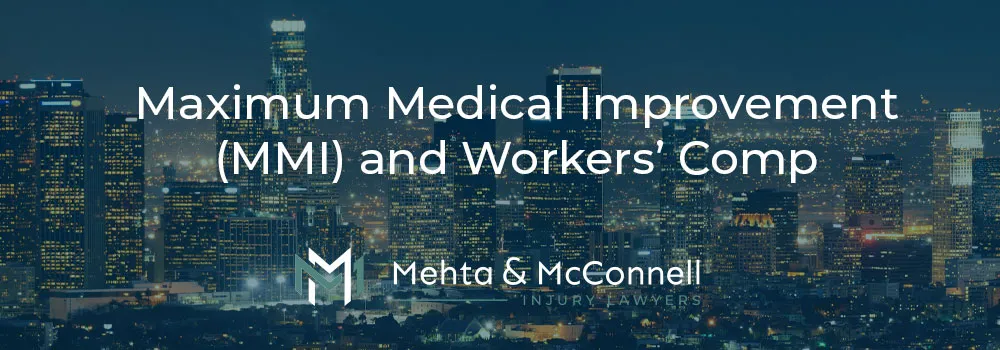 Workers' Compensation
Workers' Compensation
Some work-related injuries are so severe they don’t ever heal, and the employee never goes back to normal.
If you suffer from a serious work-related injury that is going to last a long time, even years, then you will eventually hear the term maximum medical improvement (MMI).
What this term means, when it comes to MMI workers’ comp, is that your work-related medical condition has reached a point where it will not improve anymore.
If you are given the diagnosis of maximum medical improvement, your doctor has determined that there is nothing more that can be done to improve your condition and that you will likely stay in this condition for the foreseeable future.
How Does an MMI Rating Affect Your Workers’ Comp Benefits?
If your doctor has determined you’ve reached MMI, then you will be assigned a rating that measures your permanent partial disability.
This can happen if you are unable to work or even if you are currently working.
Once this rating is designated, you can then request a lump-sum settlement payment based on your permanent impairment rating.
However, it may not be in your best interest to request payment of the rating.
You can elect your most munificent remedy once you are placed at MMI by your treating doctor.
If you are entitled to continue receiving wage loss benefits, your most beneficial remedy may be to continue receiving those wage loss benefits instead of payment for your rating.
You should always consult an experienced workers’ compensation attorney before accepting payment for your rating.
Many people ask, how long for settlement after MMI is reached?
A settlement can happen within a few months, assuming you and your attorney have discussed all of the issues, and you still want to move forward.
One issue that you have to understand is that your employer will still have to pay your injured-related medical treatment even after you are placed at MMI.
You can also request a second opinion after you are placed at MMI.
However, if you accept the lump sum payment, you will no longer be entitled to weekly workers’ compensation benefits if you are unable to return to work, despite the MMI North Carolina workers’ comp rating.
MMI Rating Time Frame
Once you have been placed at MMI and accept payment for a rating, you have two years to file a petition with the North Carolina Industrial Commission to have the designation changed and to argue for a change of condition.
These matters can be extremely complex and involve many moving parts. The best course of action is to contact and hire a knowledgeable and experienced North Carolina workers comp lawyer.
There are many questions that have to be answered before decisions can be made on how to proceed:
- Is the MMI rating correct, or does it have to be changed?
- Are you actually at MMI, or could there be other treatment options that haven’t been used to improve your condition?
- Are the permanent work restrictions accurate, or should they be changed?
- What is a fair settlement of your workers’ comp case once you’ve reached MMI?
Our North Carolina Workers’ Comp Lawyers Are Waiting for Your Call
For over 30 years, Mehta & McConnell have focused our practice on successfully representing injured North Carolina workers.
We fight for their right to receive the full and fair workers’ compensation benefits.
If you have an anticipated MMI date approaching and have questions, we are just a quick phone call away.
Contact us today to schedule a free initial consultation to learn more about how we can assist you.

